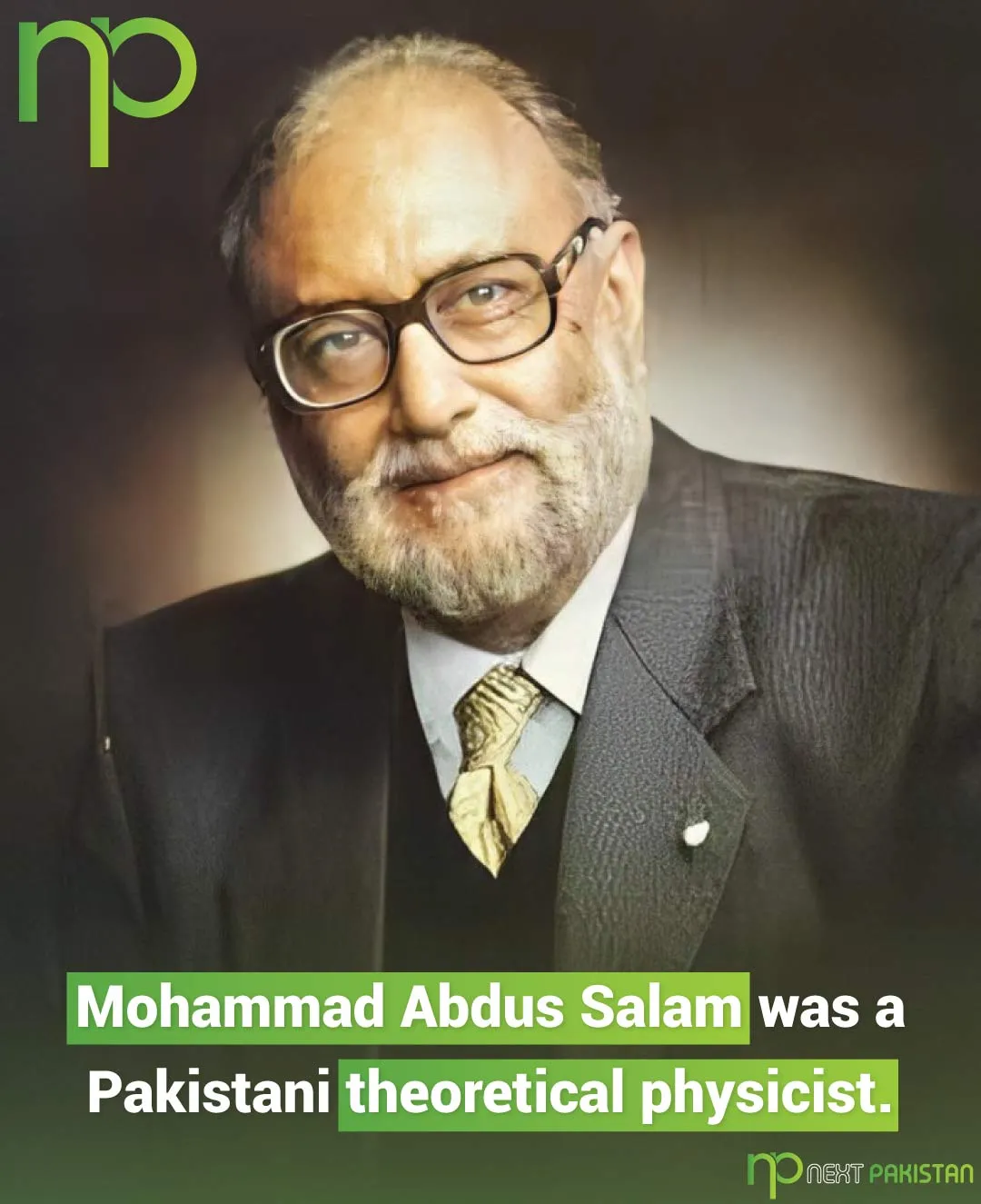
- March 25, 2024
- ubaidah khan
- 0
Abdus Salam was a pioneering Pakistani theoretical physicist who made significant contributions to the field of theoretical physics and won the Nobel Prize in Physics in 1979 for his role in electroweak unification. His educational journey began in Jhang, a small town in what is now Pakistan, where he was born on January 29, 1926.
Early Life and Education
Abdus Salam was the eldest of eight children. His father was an official in the Department of Education, which allowed Salam to be exposed to the importance of education from an early age. Demonstrating exceptional academic abilities, Salam scored the highest marks ever recorded for the Matriculation Examination at the University of the Punjab.
He completed his early education at a local school in Jhang before moving to Government College University in Lahore, where he received his Bachelor of Arts degree in Mathematics in 1946. Salam stood out for his exceptional grades and was awarded a scholarship to St John’s College, Cambridge, in the United Kingdom for further studies. At Cambridge, he pursued a bachelor’s degree in Mathematics and Physics, which he completed with distinction in 1949. Salam didn’t stop there; driven by an insatiable curiosity for knowledge, he continued his studies at Cambridge and earned a PhD in theoretical physics in 1952. His doctoral thesis, “Developments in Quantum Theory of Fields,” laid the groundwork for his future research in particle physics.
Family
Abdus Salam’s family played a significant role in his life, providing him with the support and encouragement needed to pursue his ambitions. Despite the accolades and international recognition that came his way, Salam remained deeply connected to his roots and family. He was a father and a husband who, despite the demands of his career, tried to balance his personal life with his professional obligations.
Personal life
Abdus Salam, known for his private nature and the distinction between his public and personal life, entered matrimony twice. His first marriage was to a cousin, and the second marriage followed Islamic law. At the time of his passing, Abdus Salam was survived by three daughters and a son from his first marriage to Amtul Hafeez Begum. Additionally, he was survived by a son and a daughter from his second marriage to Professor Dame Louise Johnson, who was formerly a Professor of molecular biophysics at Oxford University. Among his children, two daughters are named Anisa Bushra Salam Bajwa and Aziza Rahman, contributing to the rich tapestry of Abdus Salam’s familial legacy.
Contributions to Physics
Salam’s contributions to the field of theoretical physics, particularly in the electroweak unification part of the Standard Model of particle physics, earned him the Nobel Prize in Physics in 1979, which he shared with Sheldon Glashow and Steven Weinberg. His work laid the foundation for the discovery of the Higgs boson particle, often referred to as the “God particle.” Salam’s vision extended beyond his scientific achievements; he was deeply committed to promoting science in developing countries. He founded the International Centre for Theoretical Physics (ICTP) in Trieste, Italy, in 1964, to support physicists from the developing world.
Religious Beliefs:
Abdus Salam identified as an Ahmadi Muslim, attributing significance to his religious beliefs in the context of his scientific endeavors. He viewed his faith as an integral aspect of his scientific work, emphasizing the Quran’s call to reflect on the intricacies of Allah’s created laws of nature. In expressing gratitude, Salam acknowledged the privilege of glimpsing a portion of the divine design, stating, “I render thanks with a humble heart.”
During his Nobel Prize acceptance speech in Physics, Salam incorporated verses from the Quran, articulating the profound connection between scientific exploration and spiritual contemplation. His words conveyed a shared sentiment among physicists, highlighting the awe and wonder that deepening inquiries into the natural world provoke.
Political and Religious Climate:
The year 1974 marked a significant turning point when the Pakistan parliament enacted the Second Amendment to the Constitution, officially declaring Ahmadis as non-Muslims. In response to this declaration, Salam chose to leave Pakistan for London as a form of protest. Despite his departure, he maintained connections with the Theoretical Physics Group and academic scientists from the Pakistan Atomic Energy Commission, showcasing a continued association with his homeland.
Death and Burial:
Abdus Salam passed away on 21 November 1996 in Oxford, England, at the age of 70, succumbing to progressive supranuclear palsy. His body was repatriated to Pakistan, where it was placed in Darul Ziafat. A remarkable 13,000 men and women visited to bid their final farewells, underscoring the profound impact Salam had on the scientific and broader communities.
Approximately 30,000 individuals gathered for his funeral prayers, reflecting the widespread admiration and respect for his contributions to science and humanity. Abdus Salam found his final resting place in Bahishti Maqbara, a cemetery established by the Ahmadiyya Community in Rabwah, Punjab, Pakistan. His burial plot lies next to his parents’ graves.
Epitaph Controversy:
Initially, the epitaph on Salam’s tomb read “First Muslim Nobel Laureate.” However, due to the Pakistani government’s declaration of Ahmadis as non-Muslims, the word “Muslim” was removed from the epitaph. The headstone now bears only his name, a stark reminder of the complex religious and political dynamics surrounding the status of Ahmadis in Pakistan. The government’s action, unique to Pakistan, underscores the nation’s official stance on the religious identity of Ahmadis, as outlined in the Second Amendment to the Constitution and Ordinance XX of 1984.